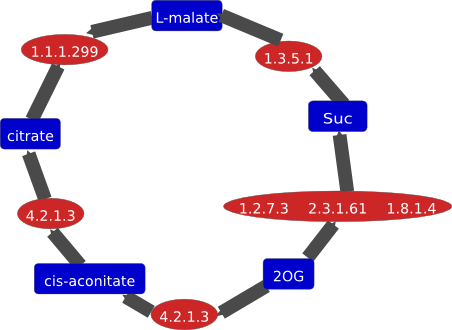EC Number   |
Expression   |
Reference   |
|---|
    2.1.3.3 2.1.3.3 | down |
lower enzyme expression is observed in hepatocellular carcinoma cells and tissues compared with primary human hepatocytes |
757879 |
    2.1.3.3 2.1.3.3 | more |
elevation in enzyme activity with increased duration of crowding is observed for all four ornithine-urea cycle enzymes examined, i.e. liver glutamine synthetase, carbamoyl phosphate synthetase III, ornithine carbamoyl transferase and arginase. By contrast, mRNA expression is variable for the ornithine-urea cycle enzymes. Results suggest that the activities of ornithine-urea cycle enzymes are better predictors for urea production than ornithine-urea cycle enzyme mRNA expression levels |
699254 |
    2.1.3.3 2.1.3.3 | more |
threefold repression of enzyme formation by arginine |
-, 725629 |
    2.1.3.3 2.1.3.3 | up |
CCl4 induces the enzyme in the liver |
-, 735966 |
    2.1.3.3 2.1.3.3 | up |
in patients with Alzheimer's disease, ornithine carbamoyltransferase is expressed in brain, but not in controls. Ornithine carbamoyltransferase expression is strictly restricted to vascular endothelial cells. Ornithine carbamoyltransferase activity is 880% increased in the cerebrospinal fluid of probable Alzheimer's disease cases compared with controls. Rare haplotypes may be associated with the risk of Alzheimer's disease through a possible modulation of the methylation of the ornithine carbamoyltransferase promoter |
700311 |





